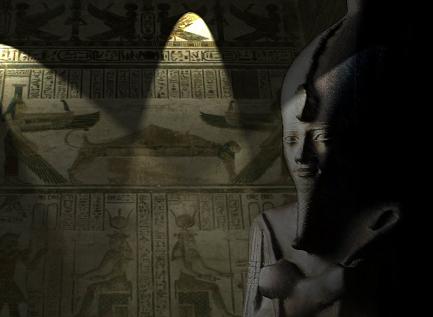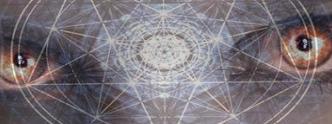The Ancient Art of Arkhelogy: The Importance of the Core Self and Core Writing
 |
[Note: This is the fifth part in a seven-part series.]
PART X: The Arkhelogy Skill: Lost in Time
If the ability to “do archetypes” is so critical to human development and so universal, how is it that it has been left out of educational curricula for so long? How is it that it is completely unknown to modern man? It is my belief that Arkhelogy was lost to mankind either when organized Christianity began to proliferate or when science became the dominant means of understanding the universe. In either case, it's a victim of historical accident. It was lost in the transition to modern times and because it was never completely understood by the new modern man, who had changed his approach to understanding from pagan-based spiritual beliefs to religion-based or to science-based understandings. To the extent modern man perceived the arkheloging ability, he probably incorrectly classed it as unscientific or heretical.

Modern man rejected superstition and relied either on the Bible (God's truth) or science (scientific truth). Modern man rejected natural and nature-based forms of personal expression. But cultural rejection, loss, or disuse does not mean the capacity itself ceased to exist.
Dr. Felicitas Goodman, in her book, How About Demons? Possession and exorcism in the modern world, discusses a similar trajectory with the ability to go into trance as what I believe happened with the Arkhelogy ability. She speculates that trance was and is genetic. She writes that “humans apparently utilize the same kind of trance for ritual purposes the world over, which suggests that it is part of our genetic endowment. It is therefore not surprising that it gets rediscovered even without access to any tradition” (p. xxx).
Goodman notes that “[w]hile the ability to go into trance is genetically transmitted, it needs to be triggered in some way in order to be available for ritual purposes,” but since “the rituals for handling this genetic endowment safely are no longer known in the city,” people have no culturally acceptable way to find it. “What happens to a genetic endowment that is no longer needed culturally?” asks Goodman. “It does not, of course, simply go away. It will continue being available, and people will accidentally stray into it.” Of course, “once caught up in the behavior ... people have no idea about how to undo what came about without their conscious knowledge or intention, and there is no specialist with the requisite knowledge to whom they could safely turn” (pp. 10, 82).

Thus, if people have -- since the disappearance from cultural use of the skill of doing archetypes -- stumbled onto the genetic endowment of the skill, they would not know what it was they were doing, would likely not be able to reproduce its occurrence, or how to get themselves out of the state they were in, and would not know how to explain it to others. In my book, I write:
“Through history, people who practiced the art and skill of Arkhelogy -- arkhelogists -- have been viewed as seers, prophets, medicine men and women, wizards, and shamans (and increasingly as pariahs or Cassandras), but the skill eluded most folk. People who were able to engage in Arkhelogy did not know how they acquired the skill. They just knew how to work their magic. Sometimes such people guarded their specialty by keeping it a mystery and even promoting the idea that the skill was magical. Once in a while, such a person was generous enough to apprentice someone with promise and teach him or her by example. But generally arkhelogists were not teachers and Arkhelogy was considered an innate gift or one bestowed from above” (pg. 8).
Today, since there is no present culturally accepted benefit to doing archetypes, most people who do stumble upon it, abandon its use at some point down the road.
Yet, the benefits of Arkhelogy are wonderful and great. Without the skill of Arkhelogy, we are like poet Elizabeth Barrett Browning's father: a person who has been “unmade from a common man, but not completed to an uncommon man” (Aurora Leigh). It is my hope that this series will begin the dissemination of the knowledge and practice of Arkhelogy and that it can start the process of enabling people to become themselves.
___________________________________________________________________________________
PART ONE: Arkhelogy: A Gateway to the Self
PART TWO: The Archetypal – The Eternal & Eye of the Soul
PART THREE: Some Principles of the Ancient Art of Arkhelogy
PART FOUR: The Arkhelogy Program
PART SIX: International High School Writing Programs
PART SEVEN: An Arkhelogy Program for International Schools
___________________________________________________________________________________

Jennifer Van Bergen is an author, educator, and environmentalist currently living in Gainesville, Florida, where she teaches English and Law at Sante Fe College. Van Bergen is a former faculty member of the New School University in NYC, where she taught a course in the Writing Program that she eventually developed into her book Archetypes for Writers: Using the Power of Your Subconscious. Van Bergen is also the author of The Twilight of Democracy: The Bush Plan for America. She has also published several scholarly law articles, including one on the 1801 electoral tie between Thomas Jefferson and Aaron Burr, here. [ jennifer.vanbergen@gmail.com ]
___________________________________________________________________________________

























